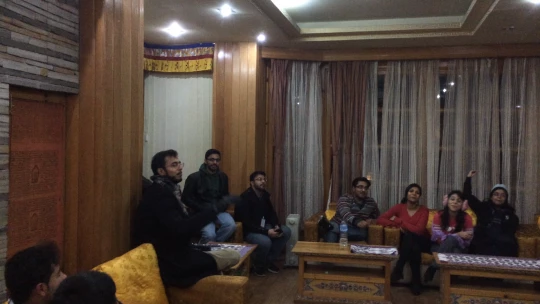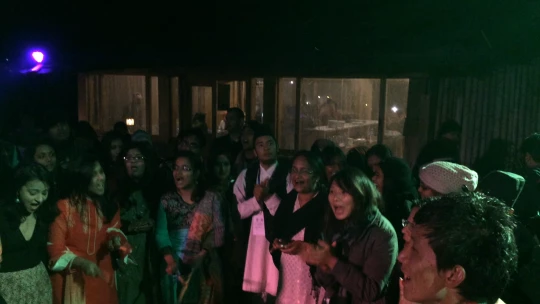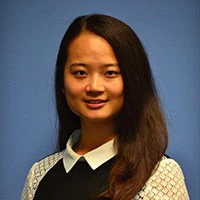
On Dec 24th 2014, Christmas Eve, I went into the reception room of Hotel Namgay Heritage in Thimphu, Bhutan to look for some students to interview for my story on the 11th South Asia Economic Students Meet (SAESM). To my surprise, I saw five sofas filled with students, as if they were waiting for me. The cruel reality was, the students from India, Nepal, Pakistan, Bangladesh and Afghanistan were singing without even noticing my entrance into the room.
They were playing an Indian parlor game (later explained to me by an Indian student) called Antakshari, where each team grouped by the sofa sings the first verse of a Bollywood movie song that begins with the consonant on which the previous team's song selection ended. Though Bollywood movies and songs are often in Hindi; somehow the Afghans who speak Pashto and Dari, Pakistanis who speak Urdu, Bangladeshis speaking Bengali and the Nepali speaking Nepalese were all able to understand each other and sing along.
Did this scene of laughing, clapping for one another remind you of the exchanges exchanges in South Asia? This is my first visit to the region. Before my departure, the tragic Peshawar incident happened and I was expecting to see potential tension between students from different countries.
What happened was just the opposite.
From the first day of SAESM, the students from India, Nepal, Bangladesh, Sri Lanka and Bhutan met together and secretly planned a surprise for the Pakistanis. On the evening of Dec 26th, at the end of SAESM’s cultural program where each country delegation performs its traditional arts, the students from India, Nepal, Bangladesh, Sri Lanka and Bhutan formed a large group and began singing “We Shall Overcome Someday,“ to the Pakistani students in memory of the deceased children in Peshawar.
This was a memorable ending to this year’s SAESM with all 80 students singing around a bonfire, a tearful yet sweet surprise to the Pakistani team, and a genuine lesson for me, an outsider from East Asia observing the event on behalf of the World Bank.
What we see from the news media can be completely opposite to what we perceive in reality. Many SAESM students told me: “You are my first Chinese friend.” I’m truly honored. But think about it this way: isn’t that also the truth for the many Indian students who see Pakistanis for the first time in life and vice versa? Only after you meet someone, you’ll be able to form friendship. And that’s what’s lacking right now: people-to-people exchanges in South Asia.
My new year’s resolution: learn a Bollywood song.




Join the Conversation